Boston Wedding Group’s founder Arlene Cronk reflects on the importance of networking organizations and how the group has evolved over the past few decades.
Heimish is a Yiddish word that is more easily felt than defined. The root “heym” (meaning home) coupled with “ish” translates to “home-ish” or “home-like.” However, it can also describe people that are approachable or down-to-earth. Much like any word it has numerous connotations, yet there is one similarity across all its uses — familiarity. A sense of fitting together that is essential to any relationship, especially to those in business. Arlene Cronk, founder of the Boston Wedding Group (BWG), says: “One of the most powerful things I think you can have in business is relationships. And when you develop a great working relationship with a client, and they need help with something, they really trust your recommendations.”
After 28 years, it is sufficient to say that the Boston Wedding Group has become an institution in the city. Although the BWG has been operating for nearly three decades, it still promotes the importance of connection between vendors and customers, as well as between its members. With over 60 vendors filling up 25 categories of wedding services, Arlene explains the kinship that forms within their community: “There’s no one who understands the wedding industry lifestyle better than those who are living it. In addition, the supportive, remarkably non-competitive, atmosphere within the BWG promotes an overall sense of community. And that very “heimish” community is the special something that keeps attracting customers and prospective vendors alike.
Why vendors need organizations like the BWG
According to Arlene, the wedding industry requires working evenings and weekends. It’s also a seasonal business that devours nearly all free time during certain parts of the year: “You work most weekends through high season from May to October.” Therefore, having fellow vendors that understand this and whom you can collaborate with is extremely beneficial. Moreover, as Arlene says, “You’re dealing with clients for whom this milestone event is extremely important,” which heightens the level of stress. Having colleagues that you can commiserate with and who understand the challenges you face, is a real plus. And there’s no one better to appreciate the joy of making a meaningfully contribution to such a significant occasion than another vendor.
How COVID-19 strengthened the group’s connection
No business owner was unaffected by COVID-19, especially those in the wedding industry who serve large social gatherings. For at least a year, the group’s focus shifted to caring for its members virtually. Zoom became a haven, as it did for many, on which to host monthly meetings. Conversations covered topics such as covid protocols, how to move forward despite repeatedly having to push dates back, changing industry guidelines for venues, and how to apply for government aid. It became almost like an emotional support group, harkening back to the days of the Bridal Survival Club (a support group for brides the BWG conducted in the 2000s) — but this time for vendors. Through checking in and relying on each other during these trying times, the group was brought closer together than ever before.
Looking forward as a business and as a community
Arlene says, “It’s relationships that I think are so important to this group and to life. It’s what helps people change and grow and to feel supported.” After BWG’s year of virtual meetings, followed by extensive, but necessary, social distancing, the truth of this statement has only become more evident. In a post-pandemic society, there can remain a sense of division that can be overcome through the healing effect of human connection. Face-to-face interactions cannot be entirely replaced, despite technologies’ best efforts. Moreover, weddings are the epitome of this sentiment by publicly celebrating the union of two people.
Perhaps it is Arlene’s, and the Boston Wedding Group’s, experience that has gifted them this understanding and allows them to thrive as a heimishe community.

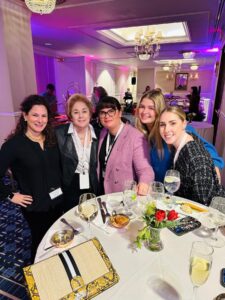
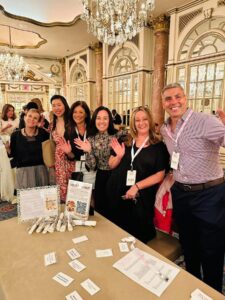
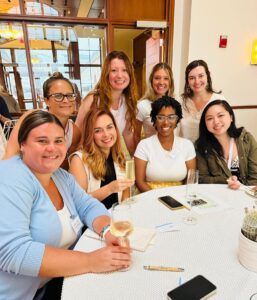
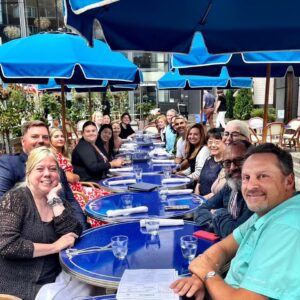
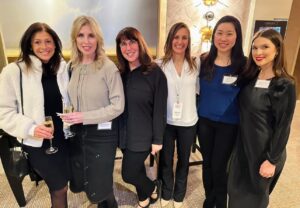
0 Comments